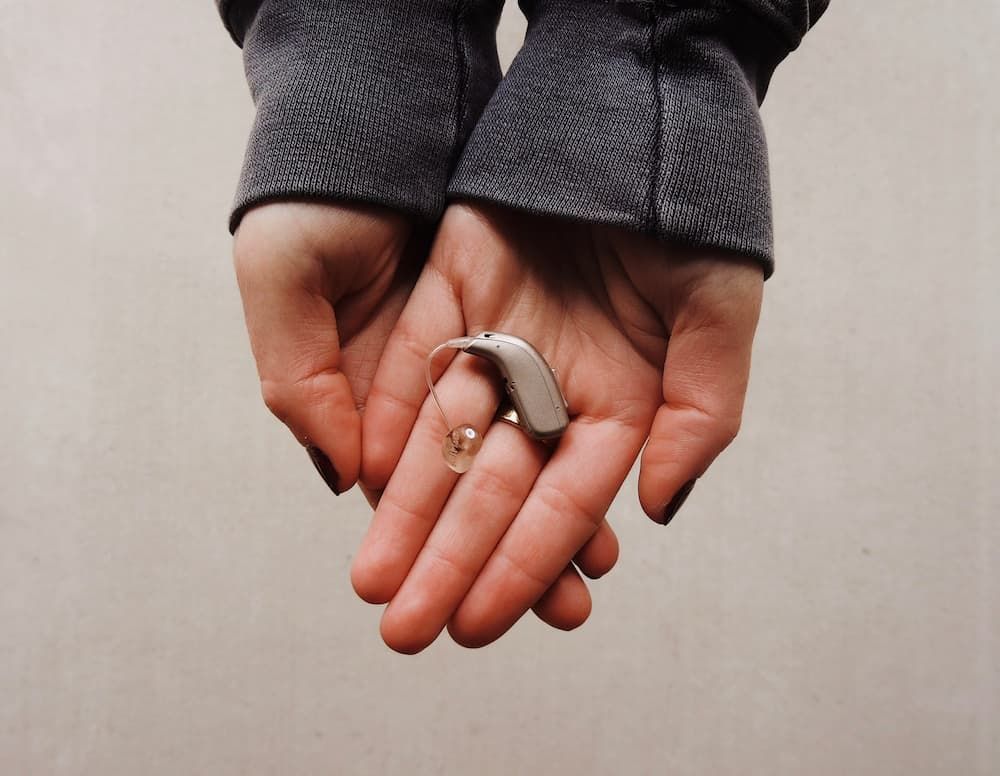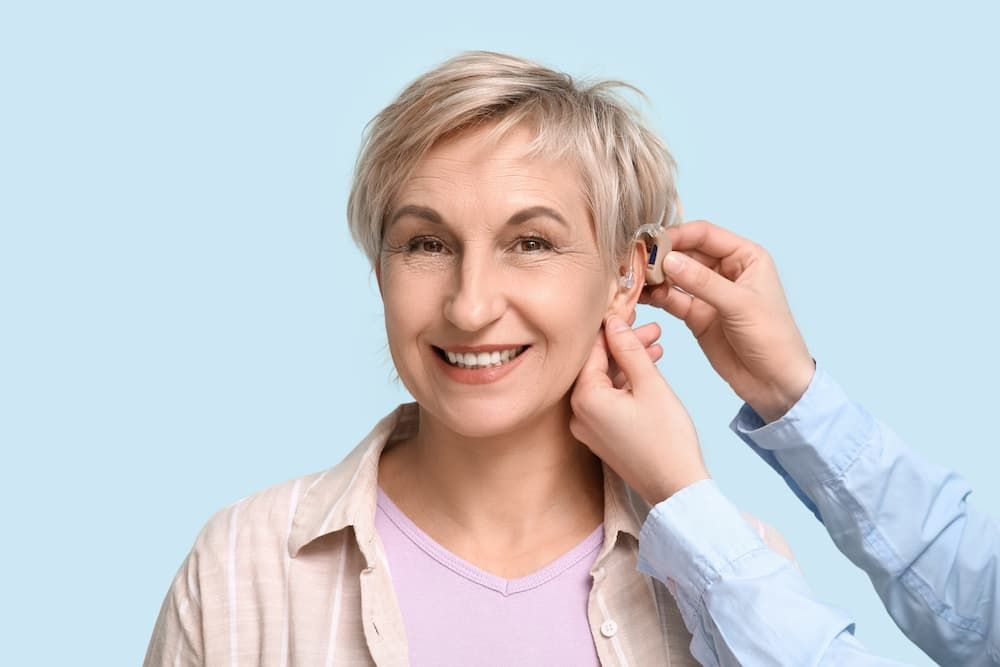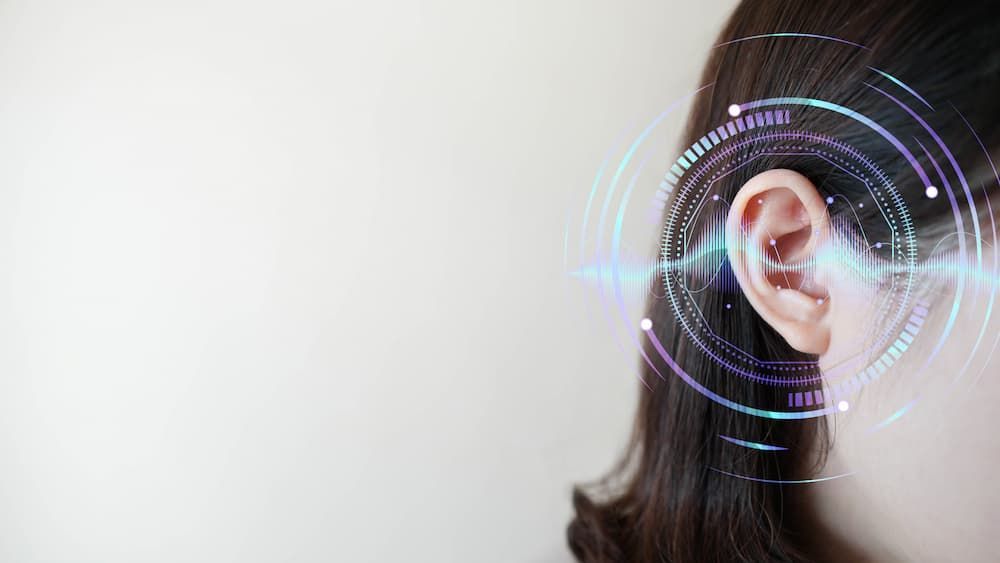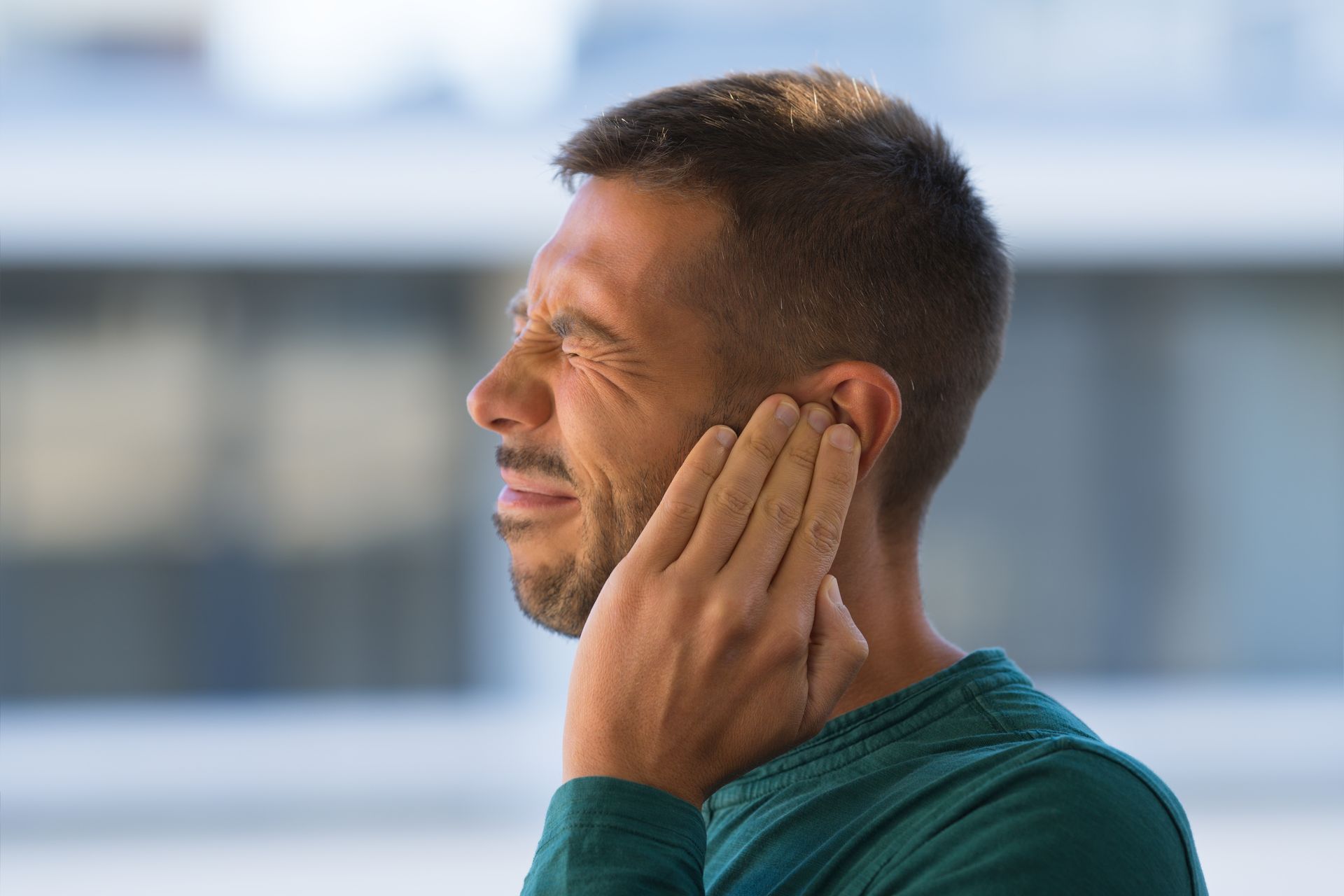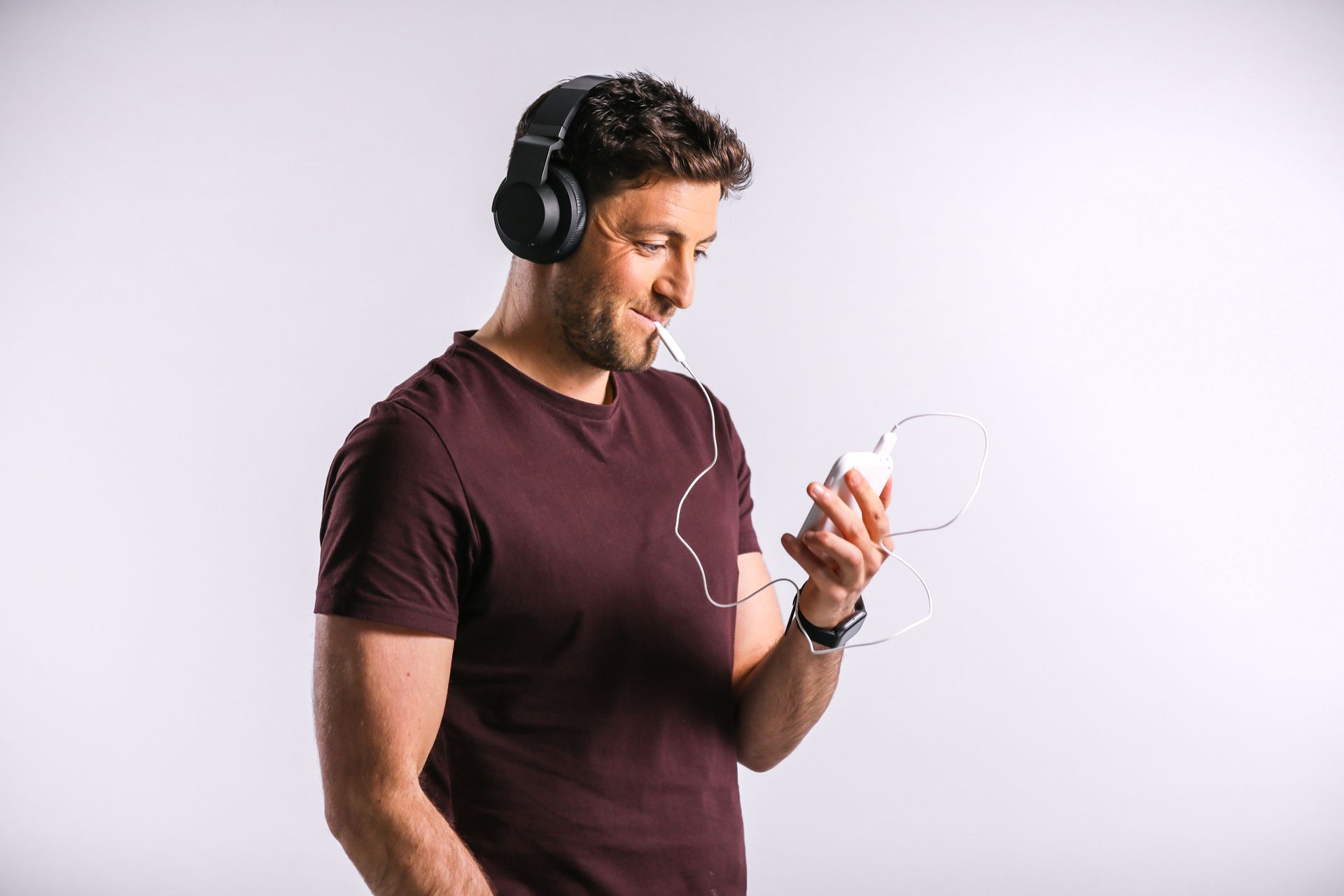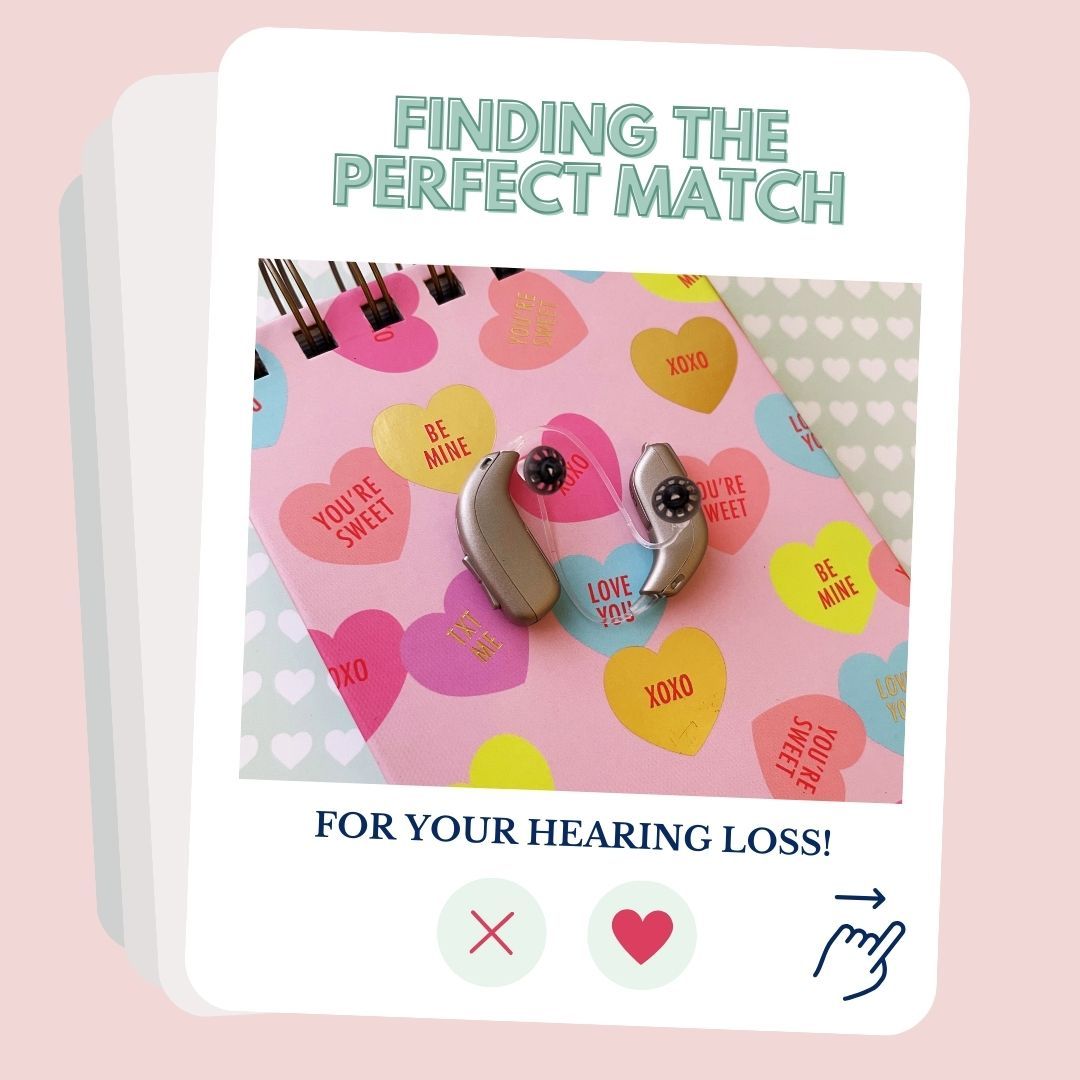The Unfair Stigma of Hearing Loss - Pt. 1

The Unfair Stigma of Hearing Loss - Pt. 1
Guest post by Scott Novak - patient of Tinnitus & Hearing Center of Arizona
 While riding my bike the other day, I rode up behind an elderly couple on the sidewalk. I rang my bicycle bell, and while most people hear it and move aside, there was no response. I rang again as I got closer - still nothing. After one more try without movement, I shouted "on your left please," and the woman grabbed the man's arm and said "move over honey," to which he grumbled and seemed oblivious to anyone behind him or that he heard a thing.
While riding my bike the other day, I rode up behind an elderly couple on the sidewalk. I rang my bicycle bell, and while most people hear it and move aside, there was no response. I rang again as I got closer - still nothing. After one more try without movement, I shouted "on your left please," and the woman grabbed the man's arm and said "move over honey," to which he grumbled and seemed oblivious to anyone behind him or that he heard a thing.
Now there's someone who obviously has hearing loss.
I started wondering if he knew that he was "hard of hearing," and if he did, why didn't he do anything about it?
Is it because he didn't want to seem "old" by getting hearing aids? If anything, his befuddled reaction made him seem like an old person way more than a little hearing aid on his ears.
Maybe they're costly? I get that - not everyone has a few thousand dollars to spend. And some people - my Mom, for instance - just simply won't pay any medical expense "unless insurance pays for it." Hey, I understand being frugal, but we're talking about suffering through every day not being able to hear well. You want to talk about "quality of life?" A few dollars a day toward hearing everything is worth it. To me, at least.
Then I started thinking about how it's perfectly fine for people to wear glasses on their face, but somehow it's "weird" to have a tiny, near-invisible device tucked behind your ear. So it's fine if your eyes start failing due to aging, but unacceptable if your ears start failing? How is that fair? They're sensory organs on your head - they should get equal respect, right?
And think about it - can you imagine the world we'd live in if people resisted getting their vision corrected? Lots of bumping into things, I'd reckon...
Is it stubborn pride? Resisting that your body is aging? Maybe not admitting that you could use a little help? Maybe distrust of technology?
So why the stigma? Why the resistance to hearing aids, hearing loss, and hearing testing? I decided to look into it further.
Full disclosure: I am a 50-year old male that is a patient of Dr. Rohe's at Tinnitus & Hearing Center of Arizona. I have tinnitus (ringing in the ears) and it became so noticeable that I decided to check for hearing loss. I'm grateful that I found Dr. Rohe; he has guided me through a journey of hearing improvement and self-awareness that I thought would be helpful to others in my similar predicament. This 2-part article is some of the information I uncovered.
 How To Combat The Stigma Of Hearing Loss
How To Combat The Stigma Of Hearing Loss
Unfortunately, there is a stigma that comes with hearing loss, or a sign of disgrace that is associated with a specific person, quality, or circumstance. Sadly, this is perpetuated by the general public, by advertisers, and even some individuals who have hearing loss. This hearing loss stigma results in individuals struggling with the condition sometimes failing to seek out treatment, thinking that wearing hearing aids will make them appear feebler, weaker, or older. However, when hearing loss is not addressed, it will continue to persist, and it might result in various serious health issues, social disengagement, or cognitive decline. By waiting to seek out treatment, or maybe completely refusing to acknowledge that you have a hearing loss, you are putting both your mental and physical health at risk.
Have you been held back by the stigma that comes with hearing loss?
Although there are numerous factors involved in the hearing loss stigma, most of them revolve around three major ideas:
- Vanity
- Ageism
- Changes in self-perception
These ideas were explored by Dr. Margaret I. Wallhagen in a study that was published in 2009.
The study reported that individuals who suffer from hearing loss will sometimes view themselves in a way that is somewhat different. They may focus on the difference between their current self and former self - being disabled versus being whole, being disabled versus able, and being cognitively impaired versus smart. For example, some people didn't want to be called "handicapped" so they procrastinated going to see an audiologist. They may present they don't have the issue and attempt to hide the fact they are having a hard time hearing.
Many people also associate hearing with ageism and aging, which is discrimination or prejudice based on an individual's age. They may find it hard to relate to younger relatives or friends or feel ostracized. Also, maybe because hearing loss has a strong association with aging, many individuals will discover that hearing aids remind them they are getting old, and that is uncomfortable for all of us.
Finally, there are some people who are afraid that if they wear a hearing aid it will make them look unattractive. They are concerned that the technology will emphasize their hearing loss and draw attention to their ears.
Not all of the participants in the study by Wallhagen were influenced by the hearing loss stigma. Even those who brushed it off, still acknowledged that the stigma exists.
Stigma Causes
Many people put a lot of value on what other people think of them, and that social concern is what produces the hearing loss stigma. Stigma is a concept that isn't unique; it is just relevant within the context of relationships and how society treats and reacts to individuals who are stigmatized, since it is only within that context that we are able to experience discrimination, judgment, isolation, or rejection.
Hearing Aid Marketing Is Part Of The Problem
Hearing aids advertisements are partly to blame. They have a tendency to highlight the discreet positioning and small size of hearing aids and focus on the device's appearance. Although these acknowledgments and advertisements address perceived realities and might enhance the chance that people will decide to seek out treatment, they also have a tendency reinforce the concept that hearing loss and using hearing aids are a stigma and need to be hidden. Advertisers showcase how valuable communication is and depict individuals of various age groups in their ads. That emphasizes the benefits that are offered by hearing aids and that people of every age are affected by hearing loss.
If you are suffering from hearing loss, then the opinions of other people who are close to you (like your coworkers, friends, children, parents, partner, or spouse) can influence your decisions and thoughts concerning your hearing health. There are so many people who just don't understand the challenges that are faced by individuals who have hearing loss and how beneficial effective treatment can be, and they continue to perpetuate the stigma of hearing loss. For example, if your spouse has a negative attitude about your hearing aids, you might not want to visit an audiologist and having your hearing loss issue addressed. On the other hand, a supportive environment can help an individual with hearing loss, help them to move forward, and explore various options as well as wear their hearing aids without them feeling they are being stigmatized or judged.
The information provided in this article is not meant to be medical advice and is for educational purposes only. If you would like to learn more about this and other hearing-related topics, feel free to contact Tinnitus & Hearing Center of Arizona by clicking here or by calling 480-831-6159.
